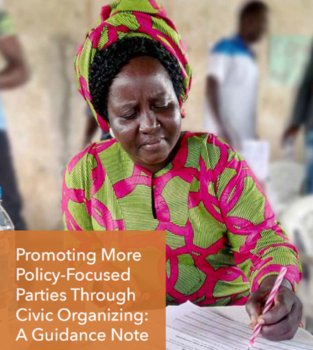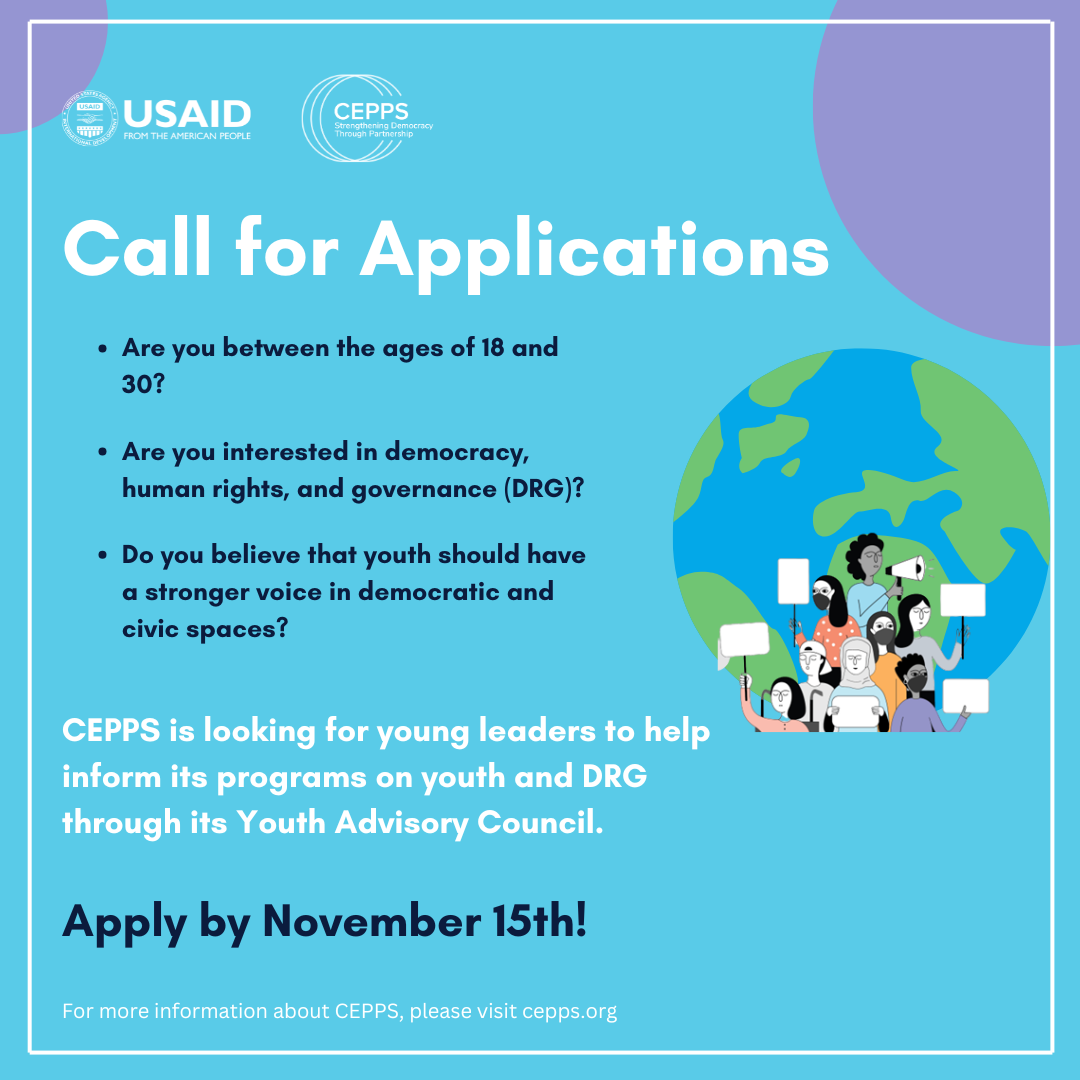CEPPS is proud to release our technical leadership project on Promoting More Policy-Focused Parties Through Civic Organizing. You can find the full guidance note on our website!

In democratic systems, political parties should provide opportunities for citizens to oversee or influence their government. In many places, however, political parties are too weak, too personality-driven, too constrained by oppressive governments or too out of touch to play this critical role in democratic governance. Developing more vibrant and inclusive democracies requires citizen-centered approaches that help people increase their engagement with and influence over political parties. While the theoretical foundations for this approach appear strong, analysis of lessons learned from practical experiences are limited.
Under the Global Elections and Political Transitions Leader with Associates grant, technical leadership activities help enhance USAID and partner capacities to conduct elections and political transition programming worldwide. As part of its technical leadership initiatives, the Consortium for Elections and Political Process Strengthening (CEPPS) recently examined the conditions under which civic organizing – such as anti-vote buying campaigns, citizen policy platforms, and other forms of advocacy – can help promote more policy-focused, citizen-centered political parties.
As part of the initiative, CEPPS:
Highlights of the guidance note include the following:
To learn more about Promoting More Policy-Focused Parties Through Civic Organizing, visit our technical leadership page!


